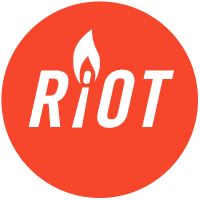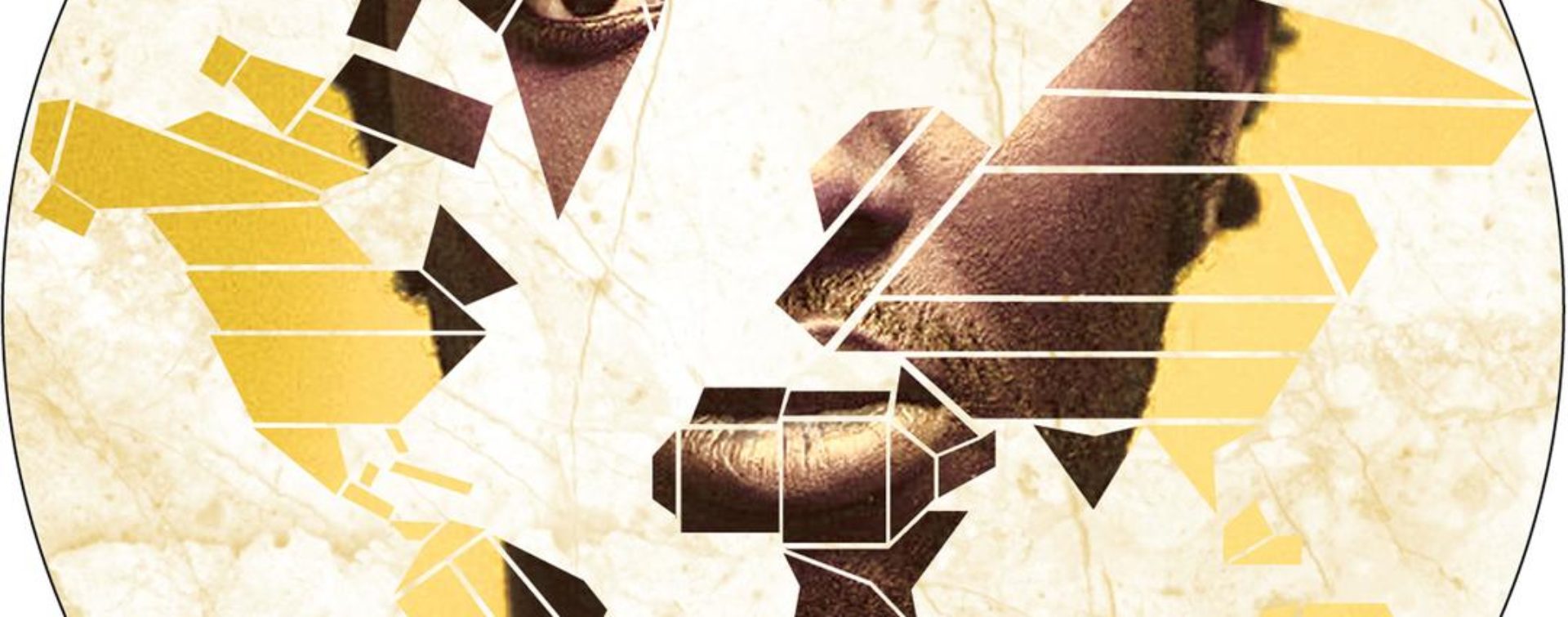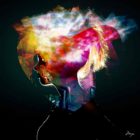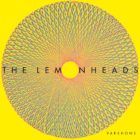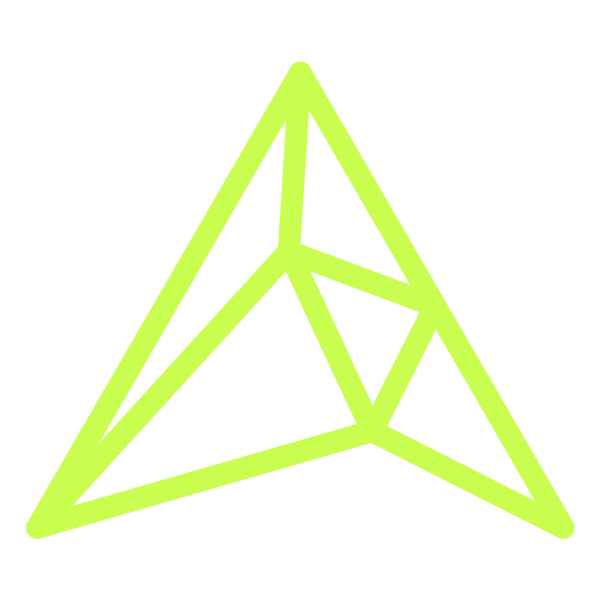The Lowdown: Kele Okereke on Bloc Party, Creativity, and Legacy
Few voices in indie rock cut as deep as Kele Okereke’s. As Bloc Party’s enigmatic frontman, Kele Okereke has continually redefined what it means to blend lyrical vulnerability with sonic experimentation. In this exclusive Lowdown interview, we dive into the mind of one of the genre’s most compelling artists, exploring everything from the creative process to the cultural pulse of their music. Here’s the lowdown on Kele, Bloc Party, and the artistry that keeps them at the forefront of indie music.
“Music is My Compass”
Kele’s music often feels like a raw, emotional conversation. Whether it’s the fiery energy of Helicopter or the aching introspection of his solo work, his art carries a sense of urgency. “Music has always been a way for me to process the world—sometimes messy, sometimes loud, but always honest,” he shares.
For Bloc Party, that honesty translates into a sound that’s as dynamic as it is intentional. “With Bloc Party, it’s about creating tension and release—our songs are conversations, not just performances,” Kele explains. This push-pull dynamic has been at the heart of the band’s longevity, carving out a unique space in the indie rock scene.
Behind the Scenes: A Creative Journey
This interview took place amidst the whirlwind of a Bloc Party tour—a moment of calm in a storm of performances. Kele’s quiet confidence during our conversation contrasted with the electrifying energy he brings to the stage. It’s clear that for Kele, music isn’t just performance—it’s catharsis.
“I want every show to feel like a shared experience,” Kele says. “It’s about the connection, the moment, and being present.”
Since their breakout debut Silent Alarm, Bloc Party has remained a staple of indie rock, with tracks like Banquet and This Modern Love becoming cultural anthems. Reflecting on the band’s legacy, Kele says, “We’ve never wanted to play it safe. The moment we stop taking risks is the moment we lose what makes Bloc Party, Bloc Party.”
Their experimentation isn’t just sonic—it’s thematic. From political undertones to explorations of identity, Bloc Party’s discography reads like a diary of modern life, with Kele’s lyrics acting as its narrator.
Hi Kele.
Hello.
We recently reviewed “Candy Flip” which was great, and we did “Heartbreaker” at the end of last year. I’m not particularly a House music fan, but I really enjoyed them.
Thank you.
I’m more of an indie/rock n roll fan, so firstly‚ why the change in style? I’ve almost seen three different Kele’s: the Bloc Party Kele, the producer/DJ that you’re doing now, and the kind of in between phase of both where you realized your previous solo records.
Well, I guess I don’t really see it as changing my style, I just see it as a continuation of my style. I’m just making music that I’m interested in producing. There was never really a big decision to throw a curveball or anything like that. I’ve been a fan of electronic music even since Bloc Party started, and as we made our records, I found myself gravitating towards electronic music. As I made two solo records, I explored those worlds further, so I guess this recent incarnation is an extension of that. I’m lucky to be in a position where I have time, and I have the capability to make music by myself, and I have an audience, so you know‚ I’m just expressing myself really. That’s the only way I can really describe it.
I was wondering if it was always something that was at the forefront of your mind? Songs like “Flux” and “Ratchet” were very far removed from what you were doing, but in a career-spanning set, they actually fit very well.
Yep. They fit well in a festival set, but if you did a whole show of those under the Bloc Party moniker, it’d be quite bizarre.
So is this something you’ve picked up from the beginning, or something you’ve become more involved in as you put the other projects down?
Yeah, I guess “The Prayer” from our second record‚ “Weekend In The City” was probably the first time, I experimented with the idea of drum loops, synthetic instrumentation. Producing something that had a more rhythmic feel, and that was the first time I approached something like that. I was very lucky to have help from our producer at the time who explained some of the rudiments of programming. It’s been something that’s been in the background from really early on with Bloc Party. So what you said about “Flux”as you mentioned, and “One More Chance”, “Ratchet,” I almost saw it as a challenge, trying to merge these disparate worlds in Bloc Party to make almost essentially four musicians playing together, how we could make that something that referenced the dance world. It was a challenge, and it was something we had to figure out, although it wasn’t strictly dance music, it kinda made something that was something else, and I thought that was cool. Now that I’m doing something by myself, it’s a different format. It’s not band music, it’s not a collaboration in that sense, it’s really just me and a computer. I was conscious that music as a band form had to be different to music I’m making by myself.
So one of the things I was thinking about as I listened to the two new EP’s, as I’ve not seen you live under this new style, was people like Soulwax. When they come out and do the 2 Many Dj’s/Soulwax show, so there’s that mix of live instruments, a drum kit, a guy on bass, a couple of guys on keyboards and laptops, then the two brothers come out later and do a straight-out DJ set. Have you thought about, or have you even thought about incorporating live instruments into your current sound or your live setup?
Recordings or performances?
Let’s go performances.
Yeah, I guess somewhere down the line that could be cool and quite interesting. I mean at the moment, I’m just focusing on producing the music, not on performing, that’s not really where my heads at. I mean, I think it could be interesting, but you know, Bloc Party is separate to this, so I don’t see there being much cross referencing at this point.
Sure. And the press release that came to us with “Candy Flip” said there would be more releases. So is this stuff you’ve got in the bag, or are you working on an album or something?
Errrr, no. I’m just working on a few EP’s for Crosstown, I’m working on the next one at the moment. I just jumped at the chance. I was really lucky to be asked to produce some music for Crosstown, given that they’re such an important and influential label. I was asked to produce a series of EP’s, so that’s what I’m focusing on doing at the moment.
OK. So, Candy Flip’s the actual title, and I might be being a bit naive, I think I know what a candy flip is, but I wanted to see what your interpretation is.
(Laughs) I dunno, I think we might be straying into an area I shouldn’t be, so I’d like to hear your interpretation (laughs).
Ha, OK. So, I had to Google it, I wasn’t sure. The first thing that came up that sounded like it might be relevant is dropping E and LSD together, which is apparently a ‘Candy Flip.’
Yeah, that’s the most common interpretation of the name. How old are you if you don’t mind me asking?
I just turned 30.
Oh OK, so I’ll be 33 this year, so I guess we’re just over 2 years apart. It was a term that was quite popular in the mid to late 90’s. But now people don’t really take ecstasy very much these days, so people a bit younger than me probably wouldn’t know what the term is. That’s where I got it from.
That was the other thing, when I read what it was, I thought as you’re releasing on a House label currently, did you want the lyrical content to fit the atmosphere, or did the lyrics just fit the music regardless of that?
Yeah, it wasn’t specifically rationalized. I hadn’t really thought about it in that sense. I’ve always liked the term “Candy Flip,” it’s such an interesting word. When I was coming up with the lyrics, it just seemed to make sense. The track itself has a very ominous sense of foreboding in it, and I like the feel of this intense rush, which I feel makes sense in the context of the track, this frightening sense of euphoria.
I wish I’d spoken to you before I put the review together, that’s a great way of describing it! The only way I could put it down in words, was to say it’s “She’s Hearing Voices” for the House crowd.
Oh wow!
That’s how I interpreted it. It’s that kind of very dark, empty feeling, like you’re on a trip, you want to get off, you can, but you choose not to.
Yeah.
So also, now you’re doing this new project, and as you’ve flicked between projects previously, do your listening tastes change with them?
My listening tastes change all the time. That’s kinda why my output as a musician is so varied. I get really obsessed with things, and I have to listen to music repeatedly, and then suddenly I’ll have enough and I’ll have to listen to something else. That’s how it’s been for the last ten years with me making music. For me right now, I listen to a lot of House music. Tech House, Vocal House, Deep House, Minimal‚ because I’ve been DJ’ing so much, I’ve been absorbing it a lot. It’s been fun, there’s something quite exciting about immersing yourself in a world you don’t know so much about, or you only know from a distance. It’s kind of like that feeling of a new instrument. You know there is something fantastic just outside of your grasp, and the only way to get there is to keep practicing. It’s kind of where I am now, listening to music, where I haven’t been excited for a while to listen to new music.
I know what you mean. I kind of go through phases of new music being underwhelming. As an actual career musician, do you benchmark yourself against the current output in the industry. Do you take stock and think you need to up your game, or that you’re ahead, or something completely void of those?
I don’t know. I felt for a long time that you have to be very careful when you’re making music not to be so aware of what’s happening around you, as you can end up kind of commenting, or there can be this kind of meta-narrative, where you’re referencing other people’s records, other people who are around at the same time as you, and that just feeds back into your work, and I don’t think that’s healthy. I guess I made a conscious decision. I guess it’s a combination of things, I’m not really interested in what’s around, I was just talking to Russell actually (the guitarist from Bloc Party) and we were talking about new bands, and we couldn’t think of any that excited us, really. He couldn’t think of any at all, and I don’t know any at the moment, but I don’t think that’s such a bad thing, to know what everyone else is doing. It forces your art to come from its own place.
That’s a good way to be if you’re making music. I watched a Muse documentary, and Matt Bellamy was saying that there was a period of about 3-4 months where he shut out all music, because he wanted to try and write what he termed as “pure music.” He didn’t want to be influenced, even subconsciously by anything. He wanted to be completely removed, so he could make that music. He tailed off a bit towards the end, so I’m not sure if he managed it, but that’s an interesting approach I thought.
It is an interesting approach, but I’m not sure personally I’d ever go to that extent. It’s kind of impossible – you watch television, you go into a shop, somebody drives past in a car and they’re playing music – I don’t necessarily think that’s a bad thing. I think the issue for me was I didn’t really want to hear other people’s music. I have no problem with them playing Miley Cyrus in the gym, it’s good for me to know what pop music is right now, but I don’t really want to know what Bastille sound like. I’m sure they’re fine, I’m sure they sound awesome, but I wanna keep that thing at bay.
I’m with you on that.
I don’t know what they sound like, I’m sure they’re fine, but I’m not interested. There’s loads of bands like that though. If it’s good, I’m sure a friend will tell me about it, or I’ll hear it somewhere, or I’ll search that kind of thing out.
Cool. So I’ve asked a few people this question in recent interviews, and I’ve had some mixed responses, but in no way is it meant as a joke or a trick question, it’s your interpretation of the question. So, in your opinion, over all of your projects, what would be your best and worst song?
Well, what’s my best song? I can only really say the song I like the most, I don’t know what other people would say. At the moment I’m really into a song I did for my first solo record called “Rise.” I really like that song. It was for a friend of mine. Whenever I listen to it, or whenever I hear it, it takes you back to the emotions of when I wrote it.
OK, cool. And is there anything that you’re glad you don’t play anymore? We had a great response from Johnny Borrell, he’d done a Shakespeare poem to music, and spent a few days wailing over it, and then put it out as a b-side or something, but he was head in hands laughing saying it was dreadful. Do you have any moments like that?
I guess I wish we hadn’t released “I Still Remember” from our second record. I liked the idea, I liked the imagery, I just don’t think it was a very good song. We don’t really play it now, and we haven’t really played it for a while. That sort of thing always changes. Maybe I’ll hear it one day and it will apply to the situation I’m in, it always changes. Maybe one day it won’t seem so distant. There’s been a lot of songs in the past that I’ve not been into, that you hear again, and it takes you somewhere else. There was that song “Kreuzberg,” that I always liked, but I don’t think we nailed the recording. We kind of switched up the arrangement, and we started playing it again on our last tour, and that’s the beauty of music, you can always mix it up and interpret an old idea, and make it make sense in your current catalogue of music. I don’t really feel regret that often. I think that should be our challenge, to re-work “I Still Remember.” I really like the lyrics, and the feel, and what it’s about, but I don’t think the delivery kind of worked. Anyway!
It’s nice to have a challenge, and the versions on the record don’t have to be the final version.
Yeah, and that’s the power of a song. Other people can reinterpret it. It’s always really fascinating for me to hear our songs covered by other people. Its like you’re giving birth to something, you’re breathing life into something. That’s awesome, it’s going to stay alive and stay around in people’s consciousness longer than I’ll be alive, and that’s quite a magical feeling.
Totally, it must be nice to hear other people taking the time to do that. But that’s all we have from us, so thanks again for your time, and I’m sure we’ll grab the next few releases!
OK, thank you. Have a good day, bye!
RIOT Connection: Creativity That Resonates
At RIOT, we resonate with Kele and Bloc Party’s fearless approach to creativity. Their music inspires the same boundary-pushing ethos we bring to our projects, whether it’s in video production, design, or storytelling. Bloc Party’s journey reminds us of the power of taking risks, staying true to our voice, and creating work that leaves an impact.
Kele Okereke creates experiences. From Bloc Party’s earliest anthems to his introspective solo ventures, Kele remains a storyteller, a provocateur, and a voice of our times.
As Kele reflects, “The only way to keep growing is to stay curious. That’s what keeps the music alive.”
Here’s to the ongoing evolution of one of indie rock’s most brilliant minds.
